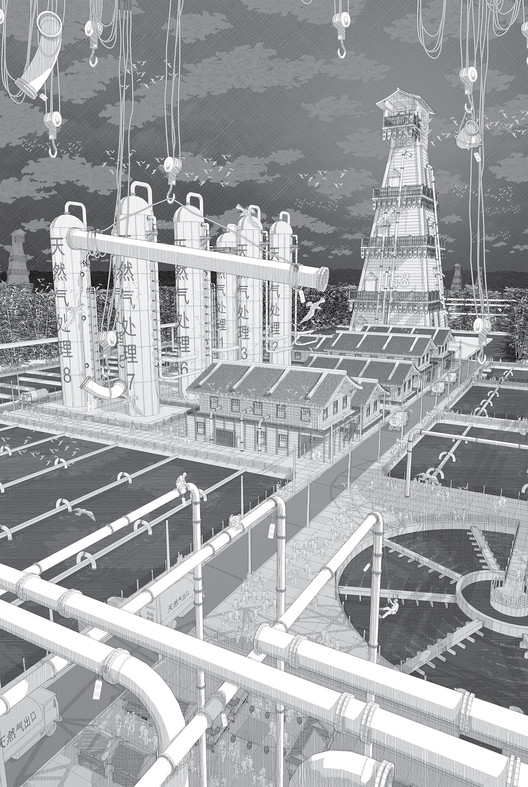
Jason Lamb, a recent graduate from London's Bartlett School of Architecture, has developed a project which centres around the legacy of hydraulic fracturing in the British coastal city of Blackpool. The theoretical thesis, which employs the possibility of Chinese investment prompting the transitory integration of hydraulic fracturing within the city for the exploitation of shale gas, features a number of interesting explanatory illustrations.


According to the designer: "an unconventional approach towards hydraulic fracturing instigates urban regeneration and provides a framework which cultivates new industries, generates sustainable water systems and induces renewable methods of energy production. Thirty-five fracking stations are integrated and a sustainable offshore community is constructed to offset effected communities. During fracking the station serves as a platform from which shale gas can be extracted, processed and distributed."


"Over an 80 year timespan, the project speculates the transformation of Blackpool from an industrial Petropolis, to a less resource dependent and decentralized sustainable city. Industrial infrastructure once used for hydraulic fracturing is repurposed to process energy crops and grey water from the region. As a method of urban regeneration, the legacy plan aims to enhance socio-economic and well-being opportunities for communities in Blackpool."










